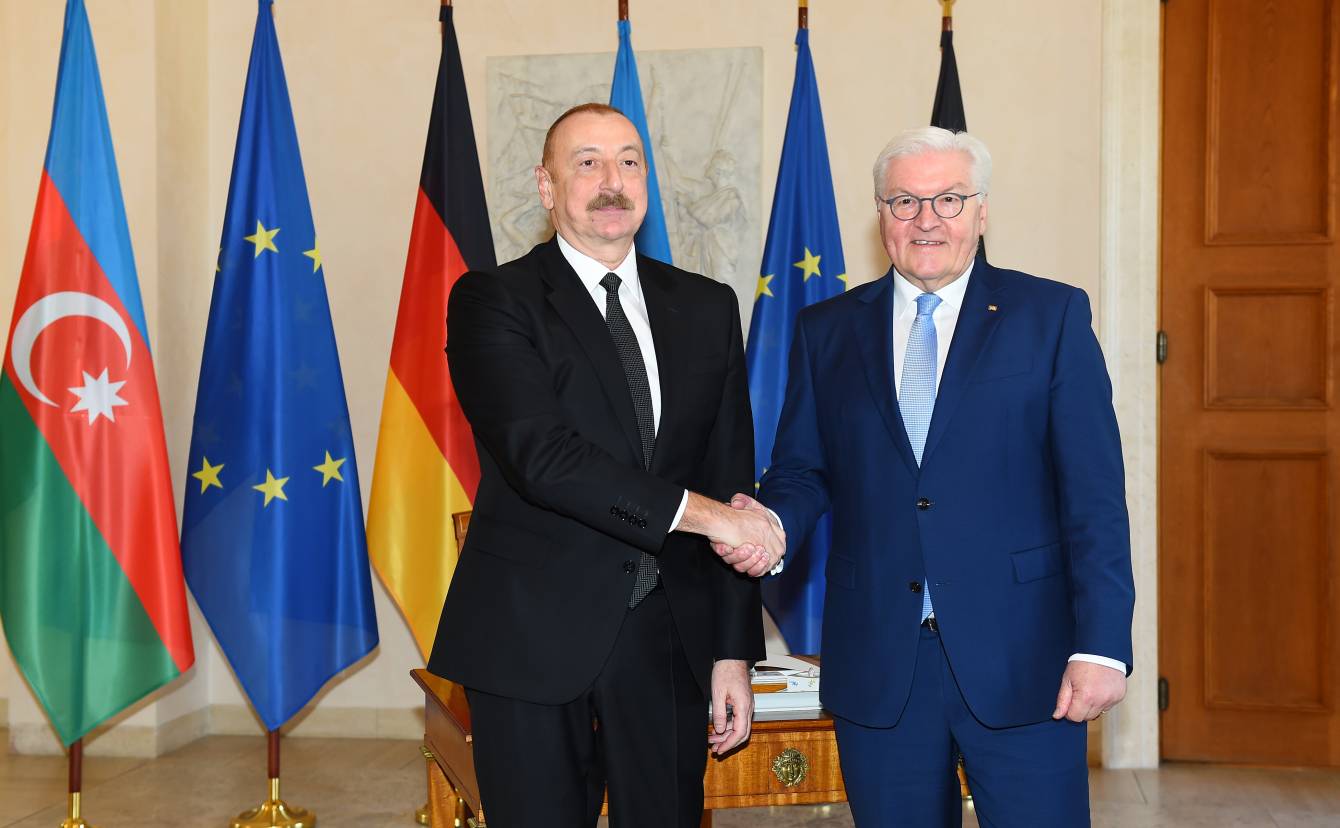BAKU, Azerbaijan, April 2. The visit of German President Frank-Walter Steinmeier to Baku is taking place against the backdrop of growing political and economic cooperation between Azerbaijan and Germany.
In recent years, the two countries have demonstrated a strong desire to deepen their collaboration in key areas such as energy, transport, investment, and trade.
For instance, trade turnover between Azerbaijan and Germany has shown steady growth. In January-February 2025, the volume of trade between the two countries reached $485.4 million, an increase of $315.1 million (2.8 times) compared to the same period in 2024. Today, Germany ranks fifth among Baku's largest economic partners.
One of the main areas of cooperation is energy. Germany, seeking to diversify its energy resource supplies, is increasingly interested in projects where Azerbaijan plays a leading role.
In January-February 2025, Azerbaijan exported 500,000 tons of oil and petroleum products to Germany, worth $276.5 million. Compared to the same period in 2024, this represents a significant increase: 5.3 times in value and 6.1 times in volume. During this period, Germany ranked second among the countries to which Azerbaijan exported the largest volume of oil.
Azerbaijan is already an important supplier of natural gas to Europe through the Southern Gas Corridor. At the same time, Baku is actively investing in expanding export routes and offering Germany promising opportunities for cooperation in green energy, including wind and solar energy projects.
In November 2024, German Vice Chancellor Robert Habeck discussed gas exports and cooperation in renewable energy sources (RES) with Azerbaijan's Energy Minister Parviz Shahbazov in Baku. This included the use of the Caspian's wind potential and the production of green hydrogen. Earlier, in March 2023, at the Berlin conference "Energy Transition Dialogue," Shahbazov held talks with over 20 German companies, including Siemens Energy, Uniper, and Notus Energy, regarding electricity transmission and the development of hydrogen projects.
Another crucial area is transport logistics. Azerbaijan plays a key role in the development of the Middle Corridor - the route connecting China and Europe through Central Asia and the Caucasus. Germany, as the largest economy in Europe, is also interested in integrating its logistics chains with this route, which opens up additional opportunities for deepening cooperation.
In recent years, President Ilham Aliyev has been actively promoting a foreign policy aimed at expanding international relations, including close cooperation with Germany. During one of his visits to Berlin, President Ilham Aliyev met with representatives of 30 major German companies to discuss investment prospects in Azerbaijan. This indicates that Germany recognizes Baku's economic potential and sees Azerbaijan as an important partner in the region.
Moreover, Azerbaijan has established itself as a leading power in the South Caucasus, a country that not only regional states but also major global players must reckon with. Energy, logistics, and sustainable development issues make Azerbaijan an indispensable partner for Europe.
The economic benefits of the partnership are clear: Azerbaijan provides Europe with energy resources, participates in the formation of new transport architecture, and offers promising opportunities for German investors. In this context, developing relations with Azerbaijan is not only desirable for Germany but also a strategically necessary step.







